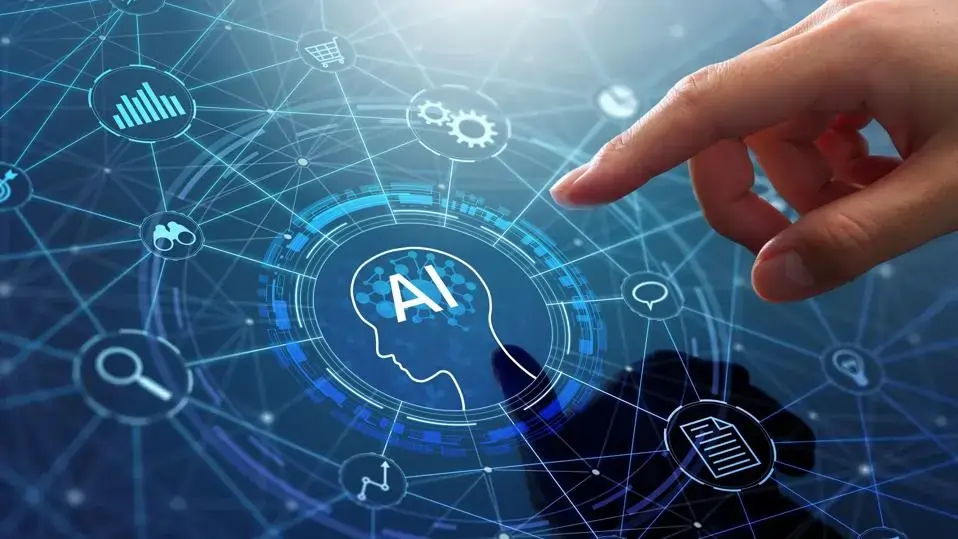AI Agents Are Here to Stay & They’re About to Be Everywhere


ElPeeWrites01 Apr 2025
AiAgentsWorkflowProductivity
Just a few years ago, the idea of AI autonomously running tasks across the internet sounded like science fiction. Today, autonomous AI agents are not just real—they’re here, evolving rapidly, and soon to be embedded in nearly every layer of our digital lives.
From managing customer support to booking meetings, writing code, generating marketing campaigns, and even handling complex research workflows, AI agents are taking over repetitive, rule-based, and even creative tasks. But what exactly are these agents, why are they growing so fast, and what’s next?
🤖 What Are AI Agents?
AI agents are systems that can autonomously perceive their environment, reason about what they see, make decisions, and take actions toward a specific goal—all without constant human input. Think of them as supercharged digital employees.
What makes them special?
- Autonomy: They don’t need to be prompted every step of the way
- Memory: Many agents can remember previous tasks and build upon them
- Reasoning: They can plan, evaluate outcomes, and retry failed attempts
- Goal-orientation: You give them a target, and they’ll figure out the steps
Tools like AutoGPT, AgentGPT, BabyAGI, and enterprise versions like Devin or ReAct-style agents built into platforms are blazing the trail here.
⚡ Why They’re Gaining Traction
- Language models are smarter: Thanks to models like GPT-4, Claude 3, Gemini, and Mistral, agents can now understand context, instructions, and tools better than ever.
- APIs are everywhere: Modern apps expose more capabilities via APIs, letting agents actually “do” things, not just suggest them.
- Plug-and-play stacks: Frameworks like LangChain, AutoGen, CrewAI, and MetaGPT make it easy to build and deploy multi-agent systems.
- Task fatigue is real: Companies want to automate repetitive digital labor to boost productivity and cut costs.
🧠 Use Cases Already Going Mainstream
- Customer Support: Agents that reply to customer chats, triage issues, and even escalate when needed.
- Coding & DevOps: GitHub Copilot is just the beginning—autonomous dev agents can write code, test it, and even create PRs.
- Marketing Automation: Write emails, optimize landing pages, run A/B tests—all hands-free.
- Sales & Outreach: AI agents can personalize, schedule, and follow up across email, LinkedIn, and CRMs.
- Research & Summarization: Agents that dig through papers, synthesize findings, and deliver digestible summaries.
💡 Real-World AI Agent Examples:
- Siri / Google Assistant / Alexa: These are early forms of voice-based AI agents assisting in day-to-day tasks like setting reminders, playing music, or answering queries.
- Notion AI: Helps summarize, generate, and refine content inside documents without switching tools.
- GrammarlyGO: Goes beyond grammar checks, offering rephrasing, tone changes, and clarity improvements—all automatically.
- ChatGPT with plugins: Acts as a dynamic assistant that can browse the web, do calculations, generate visuals, or book tickets.
- Zapier AI: Now powered with agents that decide what workflows to run based on incoming data.
🛠️ The New Stack: Tools for Building AI Agents
Want to build your own agent? Here’s a modern agent toolkit:
- Orchestration: LangChain, AutoGen, CrewAI
- LLMs: OpenAI GPT-4, Claude 3, Mistral, Gemini
- Memory: Weaviate, Pinecone, Chroma
- Tooling: Browser automation (Selenium, Puppeteer), API wrappers, file systems, databases
- Execution environments: Docker, serverless, agents-as-APIs (Reka, ReAct frameworks)
🚧 Limitations to Keep in Mind
AI agents are powerful, but not flawless:
- Error compounding: Agents that make mistakes early often spiral out of control
- Security risks: Giving agents too much access can backfire
- Ethical boundaries: Not all tasks should be automated blindly
- Latency: Chained reasoning can be slow or resource-heavy
🌐 What’s Coming Next
- Multi-agent collaboration: Teams of agents working together like human departments
- Cross-platform agents: One agent that can operate across web, mobile, desktop, and APIs
- Deep memory + personalization: Agents that know your style, habits, and preferences intimately
- Agents as operating systems: Imagine a future where your laptop boots into an agent-first experience
🚀 Final Thoughts
AI agents are no longer experimental—they’re quietly reshaping the digital landscape. They represent a shift from "tools we control" to "entities we collaborate with."
The most exciting part? We’re only just beginning. Whether you’re a founder, developer, marketer, or creator, learning how to build, manage, and collaborate with AI agents is going to be a career-defining skill.
The age of agents isn’t just near—it’s already here. And it’s moving fast.

ElPeeWrites01 Apr 2025
AiAgentsWorkflowProductivity